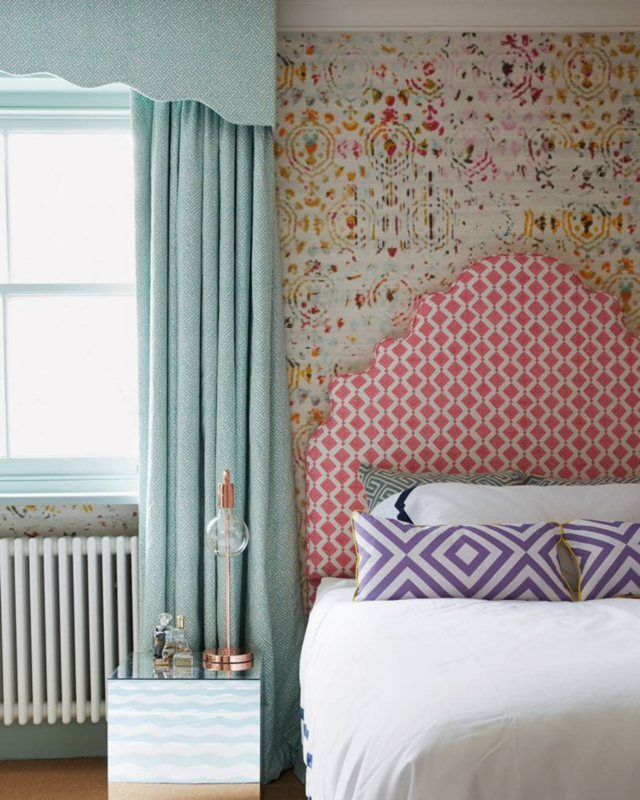Windows are an important part of any interior space, letting light and airflow into the room, as well as giving you a view of the world outside. The right window treatments have the power to make a room feel finished, as well as serving the practical purpose of enabling you to control the amount of light coming in during the day, and providing privacy when they are fully closed. Here are some different window treatment ideas for your next project:
Curtains

Image Source: Kelley Nan
Curtains, also known as ‘Drapes’ are a popular choice when it comes to dressing windows. There are a huge variety of fabric choices available to suit any design scheme, and you can choose different lining options for your curtains, depending on whether you want complete blackout or some light to filter through when they are closed.
Sheer Curtains

Image Source: Love Light
Traditional lace curtains have lost their appeal over time, but have been replaced with something much better: Sheer curtains. These are made of lightweight ‘sheer’ materials such as chiffon and are the perfect option for allowing privacy whilst still letting a lot of light into the room. Sheer curtains suit living areas well, but are not ideal for bedrooms unless you like being woken up at the crack of dawn by the sunlight streaming in!
Shutters

Image Source: Blinds 2 Go
Shutters are often overlooked as a window treatment, but there are many benefits to using shutters. As well as looking effortlessly stylish, shutters offer good sound insulation when closed, as well as providing a good level of heat insulation. In the summer shutters allow you to have the windows fully open so that air can flow freely, whilst still blocking out the light and heat from the sun, and they can be fully closed on cold winter nights to keep the heat in the room.
Blinds

Image source: Luxaflex
There are a variety of different types of blinds available, and like curtains, they can be made out of almost any fabric, making them a very versatile option. Different types of blinds include:
- Roller Blinds
- Venetian Blinds
- Romal Blinds
- Vertical Blinds
- Wooden Blinds
- Pleated Blinds
Cafe Curtains
Image Source: Q Design
A cafe curtain is a smaller curtain that covers only the bottom half of the window. This has the benefit of providing privacy whilst still allowing lots of natural light into the room. Cafe curtains suit ground floor rooms such as kitchens, bathrooms, living rooms, or dining rooms, where people may be passing by the window during the daytime.
Pelmets

Image Source: Henri Fitzwilliam-Lay via House & Garden
For a traditional finish, you can use a pelmet over your curtains or blinds. A pelmet is a traditional window treatment feature that has started to become popular again. It is a boxed structure, usually made out of light wood, and upholstered in a matching or complementary fabric to the curtains or blinds underneath it. A pelmet hides any unattractive curtain tracks, and also offers additional insulation, by stopping warm air from escaping the room through the window in the winter, reducing your energy costs.
As you can see, there are plenty of options when it comes to window treatments - whether it's full and flowing curtains, modern coverings, Roman shades, or laidback shutters. Have you used any of these ideas on your last project?
See here more of our design tips and tricks. If you would like to study interior design, take a look at our accredited courses.



